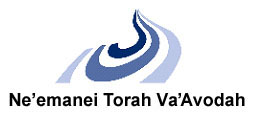Looking for a mamad school for your children?
Come hear about the integrative mamad schools close to your home!
Facing or refraining from Challenges?
Coed or Separate Education?
Integrative or Homogeneous?
We believe that Education in Co-Ed Elementary Schools has many social, psychological and educational benefits. Especially today, educating modesty will come across more correctly within a mixed educational environment.
KNOW YOUR CHILD’S RIGHTS AS AN OLEH
The school principal is responsible for the absorption and integration process of the olim students and returning Israeli students. Immigrant students should receive scholastic, socio-cultural and emotional assistance.
As Hebrew language skills are a critical part of the integration process, the government provides funds to schools so that immigrant students should receive extra hours of Hebrew instruction. The school principal must ensure that each new immigrant student is taught Hebrew as a second language, with optimal language learning taking place in a group setting and not individually.
The school should provide new immigrant families with other forms of integration help, such as offering families an accompanying English speaking parent to help navigate through school related matters. This can help parents with translating school emails and announcements, and clarifying school rules and regulations and in such a way ease a child’s integration into the school.
In order to assist integration, new immigrant students are eligible for benefits in financing part of the education expenses, such as the purchase of educational equipment and textbooks, as well as financing a “cultural basket”, with funding for trips and various events that are usually financed by parents.
This amount varies between elementary education and high school, and depends on the date of immigration. The amount ranges from NIS more than 600 shekel in elementary education for those children who immigrated to Israel in the last year and up to 1125 shekel for high school students who immigrated in the last year. Primary school children who immigrated to Israel within the last two years are also eligible to receive additional “basket payments.” High School children can receive offset payments for school supplies even during the third year after aliya.
In addition, the government allows new immigrants to take some national Hebrew testing exams in English. In primary school, second grade parents can petition to take a gifted student (mechunanim) exam in English. High school age children can apply to take the bagrut exam in English.
How to organize a parents meeting:
We see much value in parents organizing meetings with their respective schools to discuss all issues they have when it comes to the education of their child. We are aware that there are many useful models and styles of for these types of meetings but from past experiences, we believe the most beneficial meeting of this sort includes as follows:
1) An Aliyah representative from the ministry of education.
2) An integration representative from your municipality.
3) A representative from your school administration.
For more information on parents meeting and if you would like our help in organizing such a meeting. Feel free to contact Orit Lasser- Phone #: 0556632541 and email: [email protected] .
You are invited to contact the Head of Education in Movement, Rabbi Tzvi Koren
by email: chinuchneemaney@gmail.com
Or Text me 052-6070121
Paces – Educational Case Management and Consultin
Esther Lapian
Cell: 0544-473-852
E-Mail: Estherblapian@gmail.com
Esther Lapian is a teacher educator in the field of Bible studies, Jewish Thought, and Religious Education for Adolescents. She works extensively in Israel and abroad as a lecturer and consultant to educational organizations of every religious sector.
In addition, Esther runs a private educational case management and consultancy service aimed at helping Anglo parents navigate the Israeli school system and advocate for their child.
She made Aliyah from the United States and has resided in Jerusalem for past 30 years.
Related articles:
Guest Columnist: Parents Held Hostage 02/23/2012 17:05 By ESTHER LAPIAN
Let the schools direct their pupils to the source, and teach them to decode the words of the great
Is it really the best school or is it just a good filter?
?Where will you send your child to school next year
Secure in the MAMAD: A Look at the Data on Religious Public Schools in Modiin
Is your child’s school in Israel a good one? What are the kids learning in school all day? How does one school compare to another one in the same city or in a different region of Israel?
The Israel Department of Education has publicized important data on schools at shkifut.education.gov.il. When I visited the website, I saw amazing data about how students in schools throughout Israel have performed on standardized tests. Also, included in this picture of the schools were answers to questions about how students themselves evaluated their learning environment.
OLIM PARENTS NEED TO LEARN ABOUT ISRAELI SCHOOLS AND SHARE IDEAS
Welcome to Israel! If you are a new immigrant just arriving, I am writing this for you, as I see pictures of you descending from your plane here in Israel.
I remember my family’s aliyah four years ago. We arrived with four children, the oldest one headed to first grade. There were so many things to do when we arrived that at first I didn’t have time to appreciate what it meant to immigrate to Israel. However, when the school year began, I realized how meaningful it was that we had made aliyah. When my son entered first grade, I witnessed the school assembly with Hebrew songs welcoming Kitah Aleph, and I was filled with pride, hope and patriotism
Basic Educational Policies for Implementation by the Government: The Religious Zionist Approach of Ne‘emanei Torah Va’Avoda
We urge our public officials to take equal responsibility for all children in Israel. Educational policies should ensure fair competition and opportunities for the various educational institutions.
In accordance with this, we state the following three objectives:
1. Reduce the social and economic differences to ensure fair opportunities in public school education.
Every school institution should receive the same treatment. Registration should be done automatically through municipalities and official institutions. Public schools should not be allowed to use acceptance interviews, screening tests, or other exclusive practices to select students. For secondary education (high school, grades 10-12) schools should follow the guidelines put forward by the national Religious Zionist education authorities, provided that there is a religious public high school open to all.
If there is not enough students to meet numeric requirements for opening a new public school (i.e. there is no over-population of students in existing schools), new private schools that cater to only a small student body should not be receive accreditation or be eligible for direct or indirect funding. An accredited private school that is not an official public institution should not receive a budget higher than 65% of its operating expenses.
An educational supervisor should ensure the existence of social balance and responsibility among all educational institutions in each region. A supervisor should ensure that schools are following guidelines so that there are specific hours for teachers to meet with individual students outside the classroom, dedicated classes for special needs students, solutions to integrate new immigrants from different countries, and satisfactory attention paid to gifted children, educational counseling standards, and psychological services.
The government should introduce social measures to test the support for seed communities (garanim toranim), with the support ending after a number of years, in a way that strengthens the power of the local community.
2. Streamlining budgets, reducing tuition fees and maintaining fair competition between institutions
The religious education system budgets should be standard, transparent and equal in all institutions.
A strict minimum size should be maintained for official educational institutions (at least 3 classes per grade). To this end, smaller institutions should be combined and new institutions should not be opened without a clear numerical justification.
This streamlining of budgets for schools in accordance with the school’s socio-economic ranking, should be extended to secondary education (i.e., high schools) as well.
Reducing the high tuition fees will be done by ensuring the existence of large institutions and by means of transparency and collection according to the law.
3. Reducing conflict between the branches of Religious Zionism by focusing on local education concerns.
Schools should be most of all responsive to the wishes of parents in the school, with less concern for the ideologies of political platforms. This will help ensure that schools maintain a large population of students, and prevent splits in the student population.








